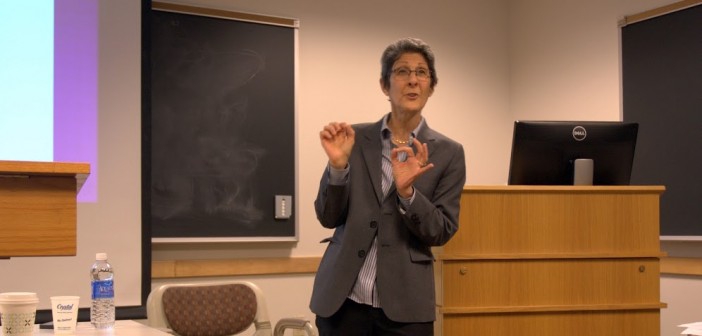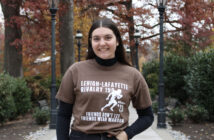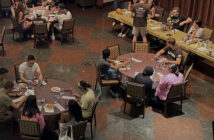Dr. Carrie Jacobs, the founder of The Attic Youth Center, discussed the success and history of the center and its impact upon LGTBQ teens and young adults in Philadelphia at Lehigh on Thursday.
The Attic Youth Center is a program based in Philadelphia that provides a supportive and loving atmosphere for LGBTQ members aged 14-23 who may not feel safe otherwise. The brainchild of Jacobs, the program is mainly youth-driven and offers job resources, family counseling, mental health services and so much more.
The Attic’s current motto is “I see you. I hear you. I respect you.”
Jacobs said her idea for a space like The Attic came about in 1993. “It was a very different time back then for our community,” Jacobs said.
In 1993, Jacobs said, the term “LGBTQ” was not used to describe a spectrum of identities; only “gay” and “lesbian” were used. Jacobs noticed that there were no programs in the greater Philadelphia area, or in the city itself, that were geared towards providing an accepting environment to help LGTBQ teens and young adults explore their identities and be themselves.
Soon enough, Jacobs found a student from the University of Pennsylvania who was looking to start the same kind of program. Partnering with the Voyage House of Philadelphia, an organization that supports youths who have run away or are homeless, Jacobs found a space for her dream to thrive.
Jacobs then initiated an eight-week pilot project. Forty-one people showed up every Friday night to discuss their lives with others, who listened intently and could relate. Seeing that the project was a success, Jacobs presented testimonials to the board of the Voyage House and was granted permission to continue her program – but with no funding, and on the top floor of the Voyage House building (hence, “The Attic”). However, The Attic now had support from the Voyage House staff and could expand meetings to both Tuesdays and Fridays.
For a year and a half, The Attic continued to be subsidized solely by fundraisers. Eventually, the William Penn Foundation, also located in Philadelphia, launched an initiative to fund The Attic and similar programs in the area. Groups centered around HIV prevention also provided funding as well, and many youths from The Attic went on to become HIV prevention educators.
In 2003, The Attic finally got its own building through an individual donation.
Today, 40 to 60 youths go to The Attic daily. Families of LGBTQ youth are now approaching The Attic, as well, in an effort to become more educated about their children and their community.
Benjamin Shepherd, ’15, attended the discussion and said he was amazed much just one person can accomplish.
“I feel so inspired right now to start something like this at my old high school,” Shepherd said.
Jacobs said her accomplishments would not have happened without the youths of The Attic. Those who attended the meetings dictated how they wanted the program to run. They organized discussions in area high schools to educate their peers about the LGBTQ community.
Some talks were not always well received, Jacobs said.
“There would be kids outside the window of the classroom pointing at and taunting the ‘queer’ kids,” she said.
Joe Dille, ’14, said he enjoyed the talk and is working toward a similar goal of educating youths of all identities about the LGBTQ community and providing support for those within that community. Dille said he thinks it is important to have a place like The Attic where young people don’t have to be afraid of their identities.
“I consider myself to be pretty well-versed in this area, but I’m still learning ways to be supportive and not offensive,” Dille said.
The program has definitely made an impact in its 21 years of operation, Jacobs said. However, she knows her work and the work of The Attic is far from over. Homophobia and heterocentrism are still prevalent within government institutions and school systems even today.
Andrea Barker, the assistant director of Student Activities, attended the talk and said she recognizes this fact, as well.
“While someone may have felt comfortable coming out during high school, a new environment could put them right back in the closet,” Barker said. “Even if they are comfortable coming out in their college environment, they still may not be comfortable at home.”






Comment policy
Comments posted to The Brown and White website are reviewed by a moderator before being approved. Incendiary speech or harassing language, including comments targeted at individuals, may be deemed unacceptable and not published. Spam and other soliciting will also be declined.
The Brown and White also reserves the right to not publish entirely anonymous comments.